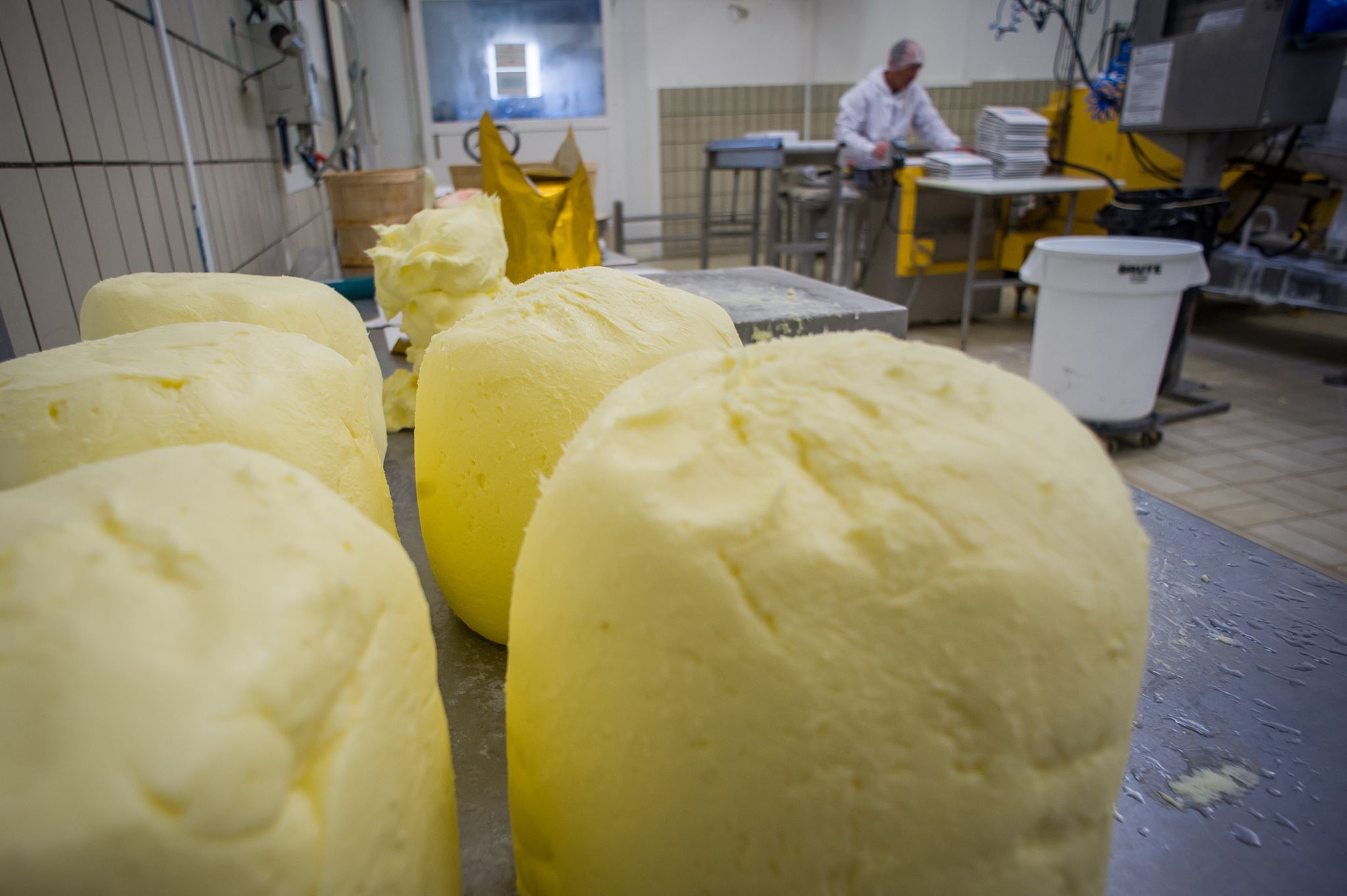Is there a butter crisis in France?
- Published

Can it really be true that the French are running out of butter? That the country with the second biggest dairy sector in Europe (after Germany) is incapable of providing households with such basic culinary fare?
The answer is yes... and no.
Yes - there are indeed butter shortages in French shops. Shelves are emptying. Supermarket own-brands have become scarce, and often it is only possible to find more expensive varieties for sale.
A sign in my local supermarket reads: "The butter market is facing an unprecedented shortfall in raw materials which is causing supply problems to this store."
There is no butter crisis. If you need butter, you will find it. But it is obvious to all that the system is not functioning as it should do. Something is going wrong.
The experts have ascribed several causes.
Spreading with pride
The world market for butter has gone into overdrive. The Chinese in particular have discovered a taste for Western-style pastries, which require butter as an essential ingredient.
At the same time, European and American consumers are moving back to butter. After years in which we were told animal fat was bad, today the advice is changing. Now, the demon is sugar. Butter has been rehabilitated, and we can spread with pride.
Just as demand for butter is rising on the world market, supply is falling. According to the EU's Milk Market Observatory, New Zealand, the world's largest dairy producer, exported 11% less butter between January and August than it did the year before.
And in the EU, there are specific problems. The end of milk quotas in 2015 led to an immediate rush to produce dairy. But that triggered a collapse in milk prices, which drove some producers back out of the market.
There has also been a question of poor weather - 2016 was not a good year in France for growing animal feed and that means lower milk yields in 2017.
With demand for butter rising and supply falling, the result is self-evident. Prices head north. Indeed over the last year and a half, the price went from €2,500 (£2,200) a tonne in April 2016, to €6,500 in September 2017.
But these factors are not purely French. Every country in the world has to cope with these market changes. Why is it only in France we see the spaces in the racks?
There is a simple answer to that - rigidities in France's system of pricing and distribution.
In other countries like Germany, supermarkets have responded to the changing world butter market by putting up their prices. In France, the cost to the shopper of a pack of butter has barely changed.
This is because butter prices are set annually in France, in negotiations between supermarkets and producers. The next round of talks is not due until February, so until then the supermarkets are only offering to pay what was agreed nine months ago - when butter was much cheaper.
French producers are not foolish. They can see that the world market is much more attractive than the domestic market. So they are saying "non" to the supermarkets, and selling their stock abroad.
So this is why the answer to the question - is there a shortage of butter in France? - is both yes and no.
No, there is no lack of butter. France still makes plenty of it. However the butter is now going to places other than where the householder expects to buy it. So yes, there is a lack of butter.
- Published6 October 2017
- Published6 September 2017
- Published6 July 2017